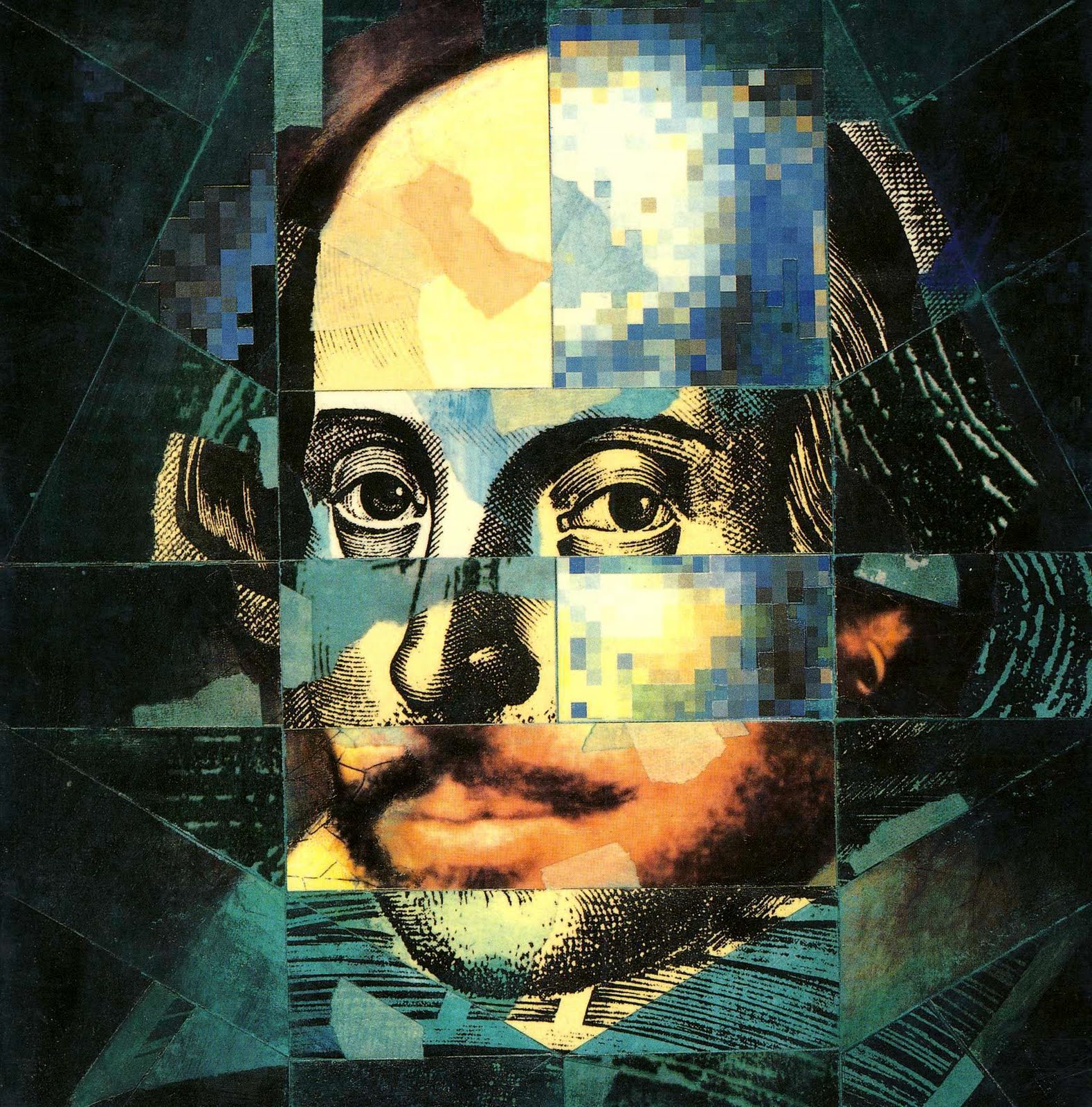“Multimedia interactive entertainment software, most commonly referred to as video games, first became popular through gaming arcades in the United States and Canada (in the early 1970s), and Japan (in the late 1970s), with unforgettable titles such as Pong (Atari 1972) , Space Invaders (Taito 1978), and Pac-Man (Namco 1979) , and quickly spread to other countries such as Germany, France and Spain during the following decade.”
-Miguel Á. Bernal-Merino
In this translation I am going to discuss about the video game translation process
called Localisation. As time went by, this process became fundamental because of video games becoming more and more complex for an international audience who could not read/speak Japanese and English, the two main languages in the video game industry. I shall explain some of the features of video game localisation, then try my hand at how a game could be translated and analyse in depth the choices I made during the process. Finally, I will analyse the linguistic features that the video game I chose possesses, so to show that they are, linguistically speaking, a full-fledged medium worthy of attention and academic interest.
For this experiment
I chose a small scene from the video game Grand Theft Auto: San Andreas. In this scene, three different characters from three different geographic areas will speak English to each other and produce three different ways of talking the same language. This scene is supposed to be funny for an American audience, so I translated the dialogue and did my best in making it comprehensible and enjoyable for a potential Italian audience, since the official Italian version of the game had too many calques, in my opinion.
I chose this subject since (because of their consumeristic nature) video games as a medium are still being ignored both by video game companies and academics. Nowadays, we do not translate just books, but also movies, operative systems, instruction manuals and of course, video games.
But does a video game translator simply “translate”?
What does a video game translator do? Is it right to simply call this professional figure “translator”, or is he or she something else? To answer these question, it is necessary to analyse the concept of localisation:
“The term ‘localisation’ is used nowadays in different disciplines such as geography, medicine or economics, but it has also been appropriated by the software industry to designate the process of ‘taking a product and making it linguistically and culturally appropriate to the target locale (country/region and language) where it will be used and sold.’”
So, to localise means to accommodate a product to a specific audience in order for them to fully enjoy it. Video games are not only composed of in-game dialogue, directions and subtitles, but also instruction manuals and legal end-user agreements need to be translated. As a matter of fact, video games have become a very complex product, as they are completely different from any other product.
It takes just a small mistake in the localisation process to make the game less enjoyable or even unappealing; a localiser must do whatever it is best in order to make a game enjoyable to the audience the product is being addressed to without hurting the user’s sensibility. This includes sometimes obscuring violent, historical and cultural contents, a clear example being what happened with the video game Wolfenstein: all references to Nazi Germany were removed from the German version of the game.

Case study
Without further ado, I’ll move on to analyse a scene from the particularly controversial video game Grand Theft Auto: San Andreas (GTASA from now on).
GTASA is a third-person open-world action game, first released in 2004 for Playstation 2. The game takes place in a fictional U.S. state called San Andreas, which is a reproduction of California and Nevada. The game map is quite big and the player has the chance to move freely everywhere on it using hundreds of vehicles, from bicycles to airplanes. The player’s role is to complete given missions as they see fit, interacting with the environment in multiple ways. The plot moves around the young African-American Carl Johnson, known as CJ (voiced by Christopher Bellard, AKA Young Maylay), and it is based upon real life events that took place in Los Angeles during the early 90’s, such as gang street wars and the LAPD Rampart scandal. Although it is considered a milestone of video gaming and the best-selling game for Playstation 2, GTASA was quite controversial for its violent and sexual content. The game stars famous actors for its dubbin, such as Samuel L. Jackson and British musician Shaun Ryder: they lend their voices to characters from various ethnic groups, each speaking their own accent and dialect, creating this melting pot of hilarious situations.
The scene I decided to work on is taken from the mission called “Don Peyote”.
In this mission, CJ is asked by The Truth (Peter Fonda, American actor and director) to go and pick up some of his friends who went missing during a Peyote Safari in the desert. They are two British men, Kent Paul (Danny Dyer, actor born in London) and Maccer (Shaun Ryder, musician born in Manchester). The scene is particularly fun for the American audience as the two British characters speak with very strong accents, especially Maccer, who speaks Mancunian and uses a very strong and offensive language.
The Italian localisation
though, did not make justice to the dialogue, hyper-correcting the lines and using calques like fottuto for fucking. Also, as Bernal-Merino explains, subtitles in video games do not really need to be shortened as it happens with films:
“They are not usually given any special or systematic thought in the video games industry beyond fitting the words on the screen to the overall visual design of the game.”
Subtitles need to stay on screen as long as the character speaks.
The localiser chose to shorten some sentences, making no distinction between the speaker linguistic style and simply using standard Italian. In my opinion, a little variation might have helped in making the characters as unique as in the original English version, since in this scene there are three people speaking three different accents of the same language.
Script Translation
| Original English | Italian Official Translation | My Translation |
| CJ Hello? Hey, anybody out here? Truth sent me!MACCER EH! Over ‘ere!CJ Hey, man, you all right? MACCER PAUL MACCER PAUL MACCER PAUL MACCER PAUL CJ MACCER PAUL MACCER PAUL (Maccer tries to stand up.) |
CJ Ehilà! C’è qualcuno? Mi ha mandato Truth!MACCER Ehi, laggiù!CJ Tutto bene? MACCER Merda, sono a pezzi. PAUL MACCER PAUL MACCER PAUL MACCER PAUL Chi sei? CJ MACCER PAUL MACCER PAUL (Maccer prova ad alzarsi.) |
CJ MACCER Ehi! Stiamo qui! CJ Ragazzi, state bene? MACCER PAUL MACCER PAUL MACCER PAUL MACCER PAUL CJ MACCER PAUL MACCER PAUL (Maccer prova ad alzarsi) |
Analysis
In my translation I focused a lot on CJ’s lines, as they look way too standard Italian for an AAE speaker. The line man, what the hell was y’all doing last night is the best sample of his linguistic style to analyse as there are many features of that accent, pronunciation and grammar-wise: the broad use of the word man, the auxiliary verb being swapped (Was rather than were), the expression y’all rather than a Standard English you and the loss of the final ‘g’ in the verb doing. Translating this sentence into standard Italian as the localiser did simply kills off his style, even though it matches perfectly what he said in English.
Moving on to Paul’s lines, he speaks with a strong London accent, even though grammatically his sentences are standard, except for both him and Maccer swapping the possessive pronoun my with me (‘Stone me bloody crows’, ‘Can’t feel me legs’). He is the one repeating the word fucking all over the dialogue, and he is the source of the calques in the Italian translation, which I decided to remove as they do not sound Italian at all and might ruin the immersive experience a video game requires.
As for Maccer, he has been the funniest to translate: since there is a huge difference from the London accent and the Mancunian, I decided to translate his sentences using contracted verbs, corrupted grammar and informalities, while keeping Paul closer to standard Italian. His line but I’m a fucking raspberry is hilarious, but it is really hard to figure out a way to put it into Italian. I decided to approach this sentence using what happens on screen: right after this line, Maccer explains that he can’t feel his legs. His language in Italian reflects the way Italian youngsters and rappers talk (Shaun Ryder, Maccer’s voice actor, is a musician himself).
On the linguistic point of view, this dialogue is quite interesting. As previously stated, CJ speaks African-American English (AAE). Some characteristics of this variation regard the dropping of the ‘g’ letter at the end of a word (Doin’, sumthin’), extending vowels and dropping the sound /ɔ/, ‘l’ and ‘r’ as in heard in / a:ɪt / (instead of pronouncing the word alright /ɔːlˈraɪt/).
Paul does not speak Cockney, although his accent is far from the standard Received Pronunciation (RP) also known as the BBC accent. We can clearly hear Southern dialect features like diphthongs (Psycho being pronounced /soikō/ rather than /sīkō/, going /gȝin/ rather than /ɡəʊɪŋ/, and down /dȝ:n/ rather than /daʊn/). As Joan C. Beal explains, sociolinguist Trudgill found out that this kind of diphthongisation is only heard below a line that runs from below Sheffield but above Liverpool and Manchester.
Maccer speaks Mancunian, whose characteristics mark the division between Northern and Southern England. According to Trudgill, the main feature that draws the line is the sound that short vowels produce in words such as but,flood and glove, the sound /ʊ/, as in put and pull, while Northern speakers would produce the sound /ə/.
As a matter of fact, Maccer sounds very different from Paul, and we can hear this from the word fucking pronounced by both in a very short lapse of time in the lines:
Maccer: “But I’m a fucking raspberry!” Paul: “You’re not a fucking raspberry!”
Paul pronounces it /fəking/, Maccer says /fʊkin/.
One more feature
of Maccer’s accent is the ‘th’ sound /θ/ and /ð/. Those sounds are being substituted with the sound /f/ or /v/: for example, the word with /wɪð/ in Mancunian will sound /wɪv/. Maccer makes a wonderful example of this in his line the use out of them, where them is pronounced /vɛm/ instead of /ðɛm/.
Even though this dialogue is very short, I believe it incarnates perfectly the atmosphere of multi-ethnicity that the developers had in mind for the game. As a matter of fact, the game has characters who speak Spanglish or who speak English with an Asian accent (the latter example being James Yaegashi, actor and director born in Yokohama).
From the linguistic point of view, GTASA proved to be accurate and interesting mostly because, as I already quoted Bernal-Merino before, videogames need to be immersive, and the best way to accomplish this is to have a coherent fictional world. Having a faithful reproduction of the American society in the 90’s is something definitely worth the play, and in order to achieve this, a multi-lingual environment was necessary. Rockstar Games, the videogames publisher who developed the game, actually spent a lot on money to hire a cast of VIPs who could lend their voices to the characters that made that world unique, and they did a great job.
This translation is also aimed to share the theories of localisation that are recently being analysed. Since the game was released before these studies were carried on, I decided to update the localisation using some of the features enlisted in Bernal-Merino’s work Translation and localisation in Video Games, those being the trancreation and the accommodation of contents to a specific audience.
As we have seen, to localise is not simply to translate messages from one language to another
but it is to accommodate contents that could be subtitles, gaming manuals and in-game directions in order to allow the player to fully immerse into the gaming experience with the least mistakes and errors as possible.
To accomplish this, localisers are free to manipulate these contents as they see fit. The main goal of localisation, claims Bernal-Merino, is not to be faithful to the original, but to entertain the widest range of players as possible. One technique the localiser can use is called transcreation, which consists in avoiding word for word translations in order to communicate successfully and bring players closer to the game and its original feel of gameplay.
This was just an example, and my hopes are that someday more scholars and Software Houses themselves might become more involved in developing efficient localisation methods and start making research.
Video games are a media that can communicate important messages just like literature and cinema can, and are worthy of our attention.
articolo di
Fabrizio Orlando
Bibliography
- Miguel Á. Bernal-Merino, Translation and localisation in Video Games, 2014, Routledge.
- Joan C. Beal, An Introduction to Regional Englishes, Edinburgh University Press, Edinburgh, 2010.
Webography
- Wikipedia, Grand Theft Auto: San Andreas, last visited 03/06/2017
- imdb, Grand Theft Auto: San Andreas Cast, last visited 03/06/2017
- English Like A Native, British Accents: MANCHESTER/MANCUNIAN, YouTube, published 30/05/2017, last visited 03/06/2017
- Basssiiie, Best of GTA San Andreas – Meeting Paul and Maccer, YouTube, published 30/12/2012, last visited 03/06/2017









